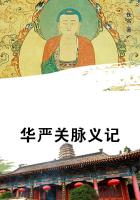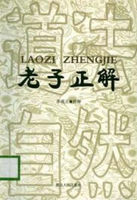According to Cicero, no one has a right to more than he needs:
such is the true interpretation of his famous axiom-- _suum quidque cujusque sit_, to each one that which belongs to him--an axiom that has been strangely applied.That which belongs to each is not that which each MAY possess, but that which each HAS A RIGHT to possess.Now, what have we a right to possess?
That which is required for our labor and consumption; Cicero's comparison of the earth to a theatre proves it.According to that, each one may take what place he will, may beautify and adorn it, if he can; it is allowable: but he must never allow himself to overstep the limit which separates him from another.
The doctrine of Cicero leads directly to equality; for, occupation being pure toleration, if the toleration is mutual (and it cannot be otherwise) the possessions are equal.
Grotius rushes into history; but what kind of reasoning is that which seeks the origin of a right, said to be natural, elsewhere than in Nature? This is the method of the ancients: the fact exists, then it is necessary, then it is just, then its antecedents are just also.Nevertheless, let us look into it.
"Originally, all things were common and undivided; they were the property of all." Let us go no farther.Grotius tells us how this original communism came to an end through ambition and cupidity; how the age of gold was followed by the age of iron, &c.So that property rested first on war and conquest, then on treaties and agreements.But either these treaties and agreements distributed wealth equally, as did the original communism (the only method of distribution with which the barbarians were acquainted, and the only form of justice of which they could conceive; and then the question of origin assumes this form: how did equality afterwards disappear?)--or else these treaties and agreements were forced by the strong upon the weak, and in that case they are null; the tacit consent of posterity does not make them valid, and we live in a permanent condition of iniquity and fraud.
We never can conceive how the equality of conditions, having once existed, could afterwards have passed away.What was the cause of such degeneration? The instincts of the animals are unchangeable, as well as the differences of species; to suppose original equality in human society is to admit by implication that the present inequality is a degeneration from the nature of this society,--a thing which the defenders of property cannot explain.But I infer therefrom that, if Providence placed the first human beings in a condition of equality, it was an indication of its desires, a model that it wished them to realize in other forms; just as the religious sentiment, which it planted in their hearts, has developed and manifested itself in various ways.Man has but one nature, constant and unalterable: he pursues it through instinct, he wanders from it through reflection, he returns to it through judgment; who shall say that we are not returning now? According to Grotius, man has abandoned equality; according to me, he will yet return to it.
How came he to abandon it? Why will he return to it? These are questions for future consideration.
Reid writes as follows:--
"The right of property is not innate, but acquired.It is not grounded upon the constitution of man, but upon his actions.
Writers on jurisprudence have explained its origin in a manner that may satisfy every man of common understanding.
"The earth is given to men in common for the purposes of life, by the bounty of Heaven.But to divide it, and appropriate one part of its produce to one, another part to another, must be the work of men who have power and understanding given them, by which every man may accommodate himself, WITHOUT HURT TO ANY OTHER.
"This common right of every man to what the earth produces, before it be occupied and appropriated by others, was, by ancient moralists, very properly compared to the right which every citizen had to the public theatre, where every man that came might occupy an empty seat, and thereby acquire a right to it while the entertainment lasted; but no man had a right to dispossess another.
"The earth is a great theatre, furnished by the Almighty, with perfect wisdom and goodness, for the entertainment and employment of all mankind.Here every man has a right to accommodate himself as a spectator, and to perform his part as an actor; but without hurt to others."Consequences of Reid's doctrine.
1.That the portion which each one appropriates may wrong no one, it must be equal to the quotient of the total amount of property to be shared, divided by the number of those who are to share it;2.The number of places being of necessity equal at all times to that of the spectators, no spectator can occupy two places, nor can any actor play several parts;3.Whenever a spectator comes in or goes out, the places of all contract or enlarge correspondingly: for, says Reid, "THE RIGHTOF PROPERTY IS NOT INNATE, BUT ACQUIRED;" consequently, it is not absolute; consequently, the occupancy on which it is based, being a conditional fact, cannot endow this right with a stability which it does not possess itself.This seems to have been the thought of the Edinburgh professor when he added:--"A right to life implies a right to the necessary means of life;and that justice, which forbids the taking away the life of an innocent man, forbids no less the taking from him the necessary means of life.He has the same right to defend the one as the other.To hinder another man's innocent labor, or to deprive him of the fruit of it, is an injustice of the same kind, and has the same effect as to put him in fetters or in prison, and is equally a just object of resentment."Thus the chief of the Scotch school, without considering at all the inequality of skill or labor, posits a priori the equality of the means of labor, abandoning thereafter to each laborer the care of his own person, after the eternal axiom:
WHOSO DOES WELL, SHALL FARE WELL.















